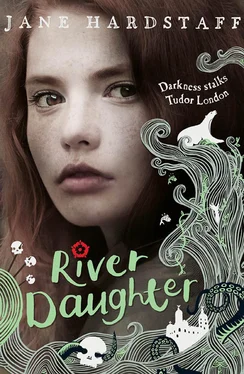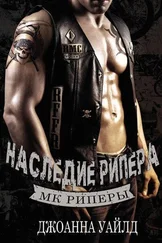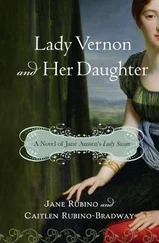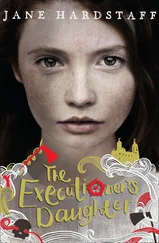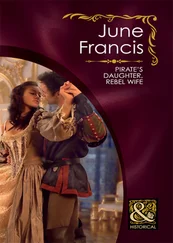‘Farmer Bailey’s bringing up Big Sal for shoeing this morning,’ said Pa. ‘She’s an old mare and no mistake. Most wouldn’t bother with an animal you can neither ride nor work. But Farmer Bailey’s got a soft spot for that horse.’
‘I’ve seen him,’ said Moss. ‘He leads her to the sweetest meadow grass. Talks to her while she eats.’
Pa smiled. ‘Would you say she listens?’
‘Yes, I’m sure she does. And you know, Pa, I think Big Sal talks to Farmer Bailey too.’
Pa nodded. ‘It’s a rare friendship, that one. Men like to think they are the master of beasts. But I don’t think Big Sal would agree.’ He took down the hammer, tongs and creaser from their hooks on the wall.
Moss watched him lay his tools neatly next to the anvil. Gentle, careful Pa. Who avoided the river if he could and liked to walk the woods at sunset. Moss had spent many evenings last autumn crunching through the leaves by his side. This way, little by little, Moss had learnt of her mother. That she was green-eyed and tangle-haired. That she had freckles on her nose and a dimple in her cheek and was so much like her daughter. That she sang when she was sad. That she’d once climbed to the top of a tree to pick a red-ripe apple, just for Pa.
Moss clutched at these fragments of her mother. But no matter how hard she tried to make Pa’s memories her own, she couldn’t. They were from a distant place that only he could reach. All the same, she clung to them. They were all she had.
‘There are still blackberries in West Woods,’ said Moss. ‘I’ll go up there now, see if I can catch Salter on his way back.’
‘Just a minute.’
‘What is it?’
‘Over there,’ said Pa. ‘There’s something for you.’
‘For me?’
There was a sackcloth bundle on the table, tied with string.
‘Open it,’ said Pa.
Moss pulled at the string and the sackcloth fell away. Inside was more cloth, a smooth, tightly-woven wool. Carefully, Moss picked it up, unfurled it.
‘Oh, Pa.’
It was a dress. Soft and green. The colour of new leaves.
‘Pa, how did you –?’
‘We’ve been plenty busy since we got here,’ he said. ‘Shod horses, mended hoes, made new knives for the innkeeper. Our first year was a good year, Moss. And you’ve outgrown those old rags you’ve had since goodness knows when.’
‘But this must have cost so much, Pa.’
‘Well, never mind that.’ He smiled and his tired face brightened, and Moss could see how happy it made him to give her this dress.
‘I’ll try it on,’ she said.
She tucked herself into her little alcove, pulled off her old dress and tugged the new one over her head. The wool was light against her skin. Compared to the scratch of the coarse garments she’d always worn, this was like stepping into silk. She stared down at herself, then felt suddenly shy.
‘Well?’ said Pa, ‘Does it fit you?’
‘It does, Pa,’ said Moss, ‘It’s the most beautiful dress.’
She wrapped her skinny arms tight around him. Pa had worked so hard to build this life for them. How could she possibly think something was missing?
‘Pa,’
‘Yes?’
‘Do you sometimes think of her?’
Pa loosened Moss’s hug so he could look into her face.
‘Your mother?’
Moss nodded.
‘Yes, I do.’
‘Does she seem far away?’
‘Well, yes and no. Sometimes I think I can still hear her.’
‘Really?’
‘Not actual words. It’s more . . . the feel of her voice. Outside. In the grass, or blown by the wind.’
‘And do you . . . do you ever, see her?’
Pa’s gaze went through Moss, to that distant place only he could reach. ‘Perhaps just a trace. It’s been so long.’ He smiled. ‘Do you think your old Pa’s a little crazy?’
‘No, Pa.’ She hugged him tight. ‘I really don’t.’
Outside, there was a clatter of hooves. A ruddy-cheeked man poked his head into the forge.
‘Mornin, Samuel!’
‘Morning, Farmer Bailey,’ said Pa. ‘Got Big Sal with you? Tie her to the post. I’ll be right out.’
As Moss left the forge, Pa and Farmer Bailey were deep in talk of horses and Big Sal and how fine a friend she was to Farmer Bailey, who would be sorry to lose her when the time came.
Moss hopped over the fence and waded through the long meadow grass. Salter would be well into the woods by now, checking his traps. Thank goodness for rabbits, she thought, for there was precious little meat. Here in the village, the sheep were for wool or milk and the pigs went to market. She hadn’t seen a ham since Twelfth Night. What a ham it had been, though. On Mrs Bailey’s kitchen table, glistening with honey and pocked with cloves. And Mrs Bailey must have seen her face pop, because she’d sent a good piece round to Pa the next day. They’d eaten it that evening, savouring every morsel of that sweet, spiced meat. But mostly they lived on stew made from the vegetables that Moss grew, fish from the river and bread bought with Pa’s earnings. And the rabbits.
It was poaching of course. The woods belonged to Sir John, and although Salter said the gamekeepers were as dozy as a cow in a hot field, he risked a chopped hand if he was caught. Nevertheless, he’d become bold and somehow he always seemed to be one step ahead. He lured the rabbits with cabbage leaves and turnips. He never set his traps in the same place. He was crafty and quiet. Neither the keepers nor the rabbits stood a chance.
By the treeline, Moss found the blackberry bushes and had just begun to fill her basket when she spotted Salter coming out of the woods with several grey rabbits flopped over his shoulder.
‘Four young bucks,’ said Salter. ‘Not a bad mornin’s work.’
‘Enough for stew.’
‘And some left over. Goin to take em to the Nut Tree now, see if I can’t sell a couple to Old Samser.’
‘I’ll come with you.’
‘If you like, but leave the barterin to me, Leatherboots, or I’ll end up with nuppence for me trouble.’
‘But I always feel so sorry for Old Samser. This isn’t London , where everyone’s looking for a way to rip each other off, you know. They do things differently here.’
‘You reckon so? Well, don’t feel too sorry for that old goat. He may be slow, but he ain’t stupid. If I let him, he’d play me like a fiddle. Anyway, a bit of bargainin keeps everyone on their toes.’

It was only ten o’clock but already smoke was puffing from the windows of the Nut Tree Inn. Salter pushed at the door and they threaded their way through the tumble of voices. No one batted an eyelid at the rabbits. Like Salter, many of the villagers poached for a bit of meat and the Nut Tree was where you sold or traded any you couldn’t eat yourself.
Old Samser stood at the top of the cellar steps, jug in hand. Wagging her tail against his leg was Poppy, Old Samser’s spaniel, staring up at Salter’s rabbits with hopeful eyes.
‘Eyes off them rabbits, Poppy,’ said Salter, letting the dog lick his hand. ‘They ain’t fer you.’
Old Samser chuckled. ‘Mornin, Moss, mornin, Salter-boy. What you got there, then?’
‘Two young bucks, Samser, if I likes the price.’
Moss knelt down beside Poppy and ruffled her shaggy coat, catching a wink from the old landlord. He was well used to Salter’s cheekiness.
‘Bain’t no lad in the village can trap rabbits like the boy here. He’s a sly city fox, this one. If he can’t get yer one way, he’ll get yer another.’
‘A groat buys you two rabbits, take it or leave it,’ said Salter.
‘Threefarthin,’ said Old Samser.
Читать дальше
